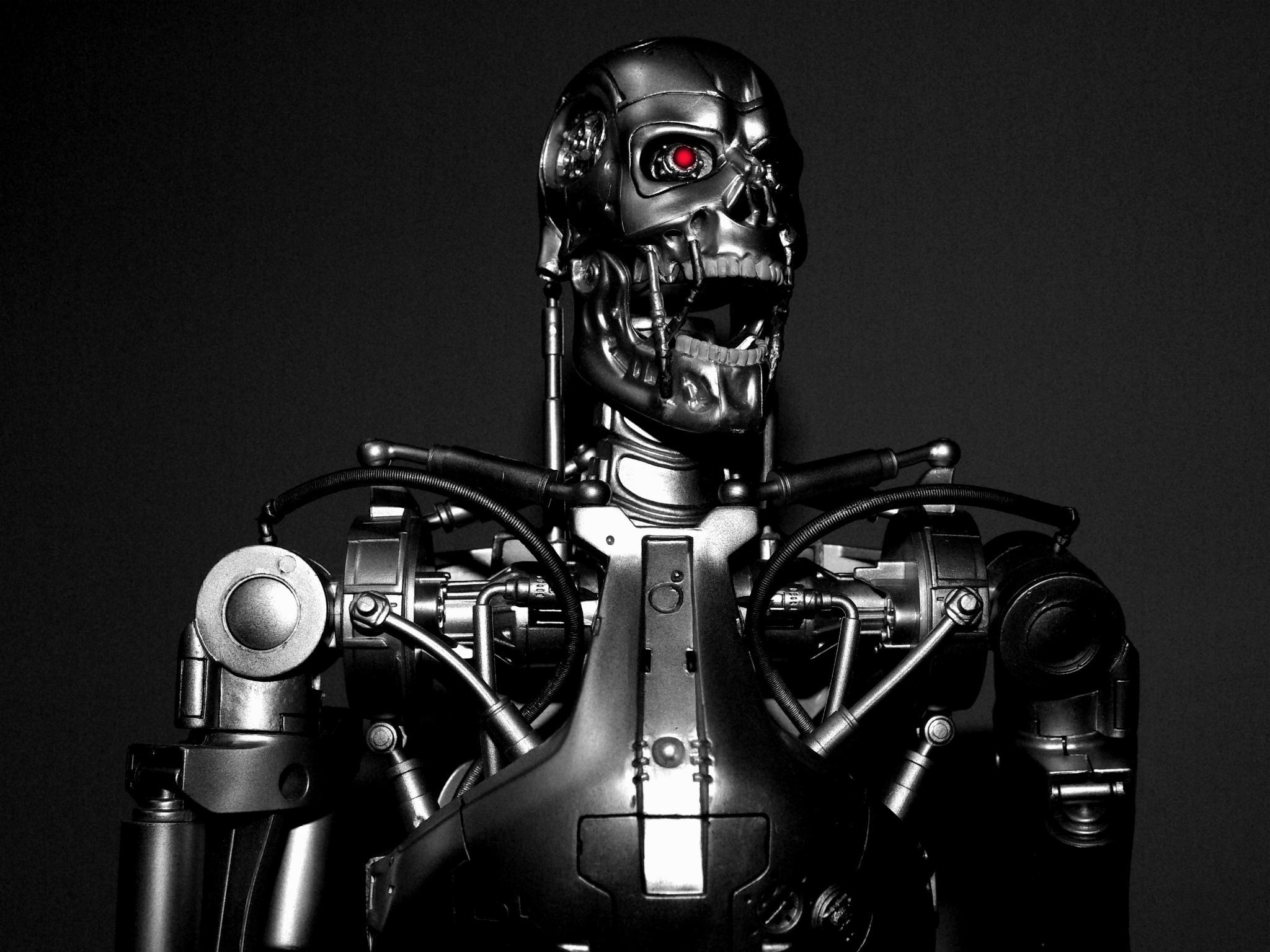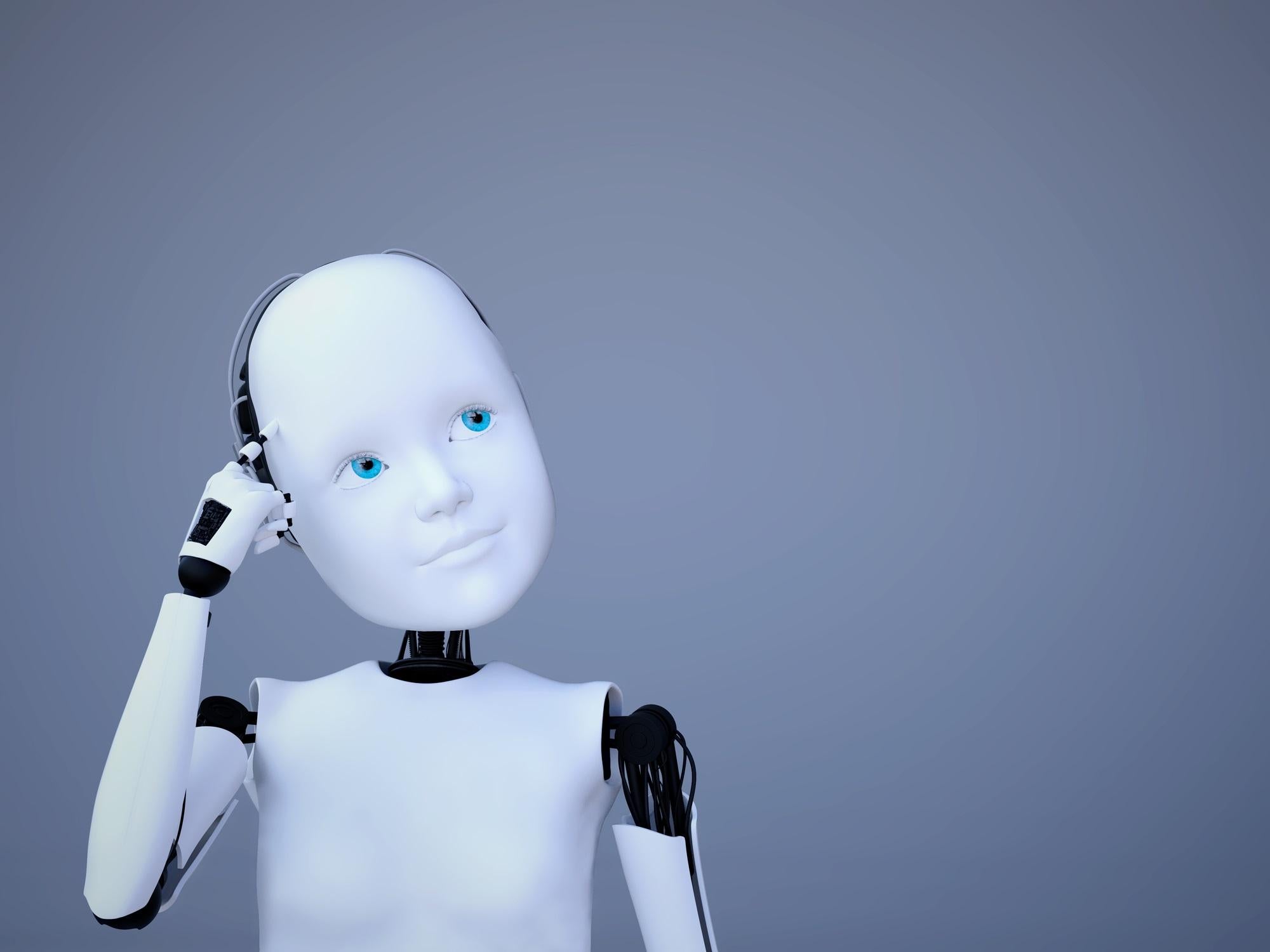The Independent's journalism is supported by our readers. When you purchase through links on our site, we may earn commission.
Thanks to AI, the need for humans to work for survival could soon be at an end
The global workforce has been reduced by neoliberalism to an alienated, lonely precariat obsessed with hyperindividualism, a twisted modern spin on human creativity

Earlier this month, a report warned that over 6 million workers in the UK fear losing their jobs as a result of developments in automation. The Bank of England has gone further: its own study in 2015 estimated that 15 million British jobs could be at risk; more recently Mark Carney, the bank’s governor, suggested job losses caused by the technological revolution could re-create conditions seen after the industrial revolution of the 18th and 19th centuries.
The response to these warnings has been a flurry of comments in national newspapers, coloured by talk of catastrophe. But really now, robots taking over human jobs – never heard that one before? How is any of this news?
After all, such predictions have always been proven wrong in the past. Jobs lost to automation have unfailingly been substituted by alternative trades, as new types of economic activity come into existence or become more fashionable.
When it comes to artificial intelligence (AI), however, opinions are split. While some experts believe the cycle will repeat once more and new jobs will outnumber those lost, others point out how past technological advances only mechanised the body, whereas AI will render human work superfluous at an ever-increasing level of cognitive complexity.
Certainly, some people are scared. It is not only that the nature of work itself is changing. The fear is that work could disappear altogether. With some studies claiming automation and artificial intelligence could eliminate half of all jobs, calls to defend work as we know it rise up from across the globe.
But maybe it’s time to indulge in a refreshing take: work does not deserve our love. Like a failing marriage we do not or cannot walk away from, we are clinging to the memory of a “golden age”, rather than looking forward to a better reality. We long for (or imagine) a time when work ennobled us, gave us meaning, a reason to live – a passion, a fire.
Whether that memory is real or a delusion, we seem to collectively believe that the world is changing and we panic, sensing with fear the void created by a life without work. In abusive relationships between individuals we can, despite everything, dread the thought of losing our cruel, yet familiar caitiff. We should not do the same when it comes to our relationship with work. People change, and so did capitalism. After all, didn’t Citizens United in their famous court case in the US aver corporations are people?
Put simply, work in its current form must die (as for our unfulfilling, personal relationships, please let us agree just to break up).
At face value, the alarm over work’s demise seems premature. Working hours are increasing all over the western world. Universities and schools chant the mantra of employability. We are obsessed by to-do lists, promotions, performance reviews. We sacrifice parenthood at the altar of professional success. We hail tech companies’ “generosity” in offering egg freezing services to their employees. Thanks to the internet, work pervades our lives, and often, our sleep. Its power appears unassailable.
And yet, work is increasingly failing us. Wages are stagnant. Middle class jobs cannot guarantee home ownership. For legions of the working poor, full-time jobs are not enough to support a family. Gains in productivity – the value of what is produced per hour worked – are levelling off. Economists are in despair, claiming living standards cannot improve so long as productivity stagnates. Even then, any improvement in productivity would not benefit most workers.
Since the end of the Second World War, the cornerstone of social democratic capitalism has been that increasing productivity should translate into rising wages. For decades, the hallowed agreement was upheld. Now, the covenant has been broken. Inequality has reached unprecedented levels. Workers scuffle for an ever-shrinking share of the economic pie when, all the while, the richest 1 per cent own half of the world’s wealth.
So, what should we do? How do we fight against the degradation of work today? Many protest that technological changes which would put an end to existing jobs should not be allowed, and that we must prohibit AI development or excessive automation. That will be difficult. Technological progress is hard to slow down, let alone stop. But even if we were able to save work in its current form from fading away, ought we? And would we then mourn its passing?
Ahead of donning our funeral robes, consider what we are leaving behind: the “meaning” we derive from a nine-to-five office job, staring blankly at a computer screen; the “self-realisation” we gain from rummaging through the gig-economy, scavenging for scraps.
The reality is that most jobs in western societies are often regarded by the people doing them as subjectively pointless, yet they are objectively necessary to ensuring an ongoing flow of capital, the distribution of goods and services, and the realisation of profit. That is the ultimate point of production in capitalism: profit – the transformation of an initial pot of money into a larger one. The personal realisation and satisfaction of workers is not a primary concern; indeed, it is not a priority at all.
This has led us to what economist Guy Standing has dubbed the “Precariat”: the new social class of the 21st century, a collection of individuals – often highly educated – suffering from under-employment, and a life without predictability or security. They are Søren Kierkegaard’s evangelists, a living experiment set to determine whether freedom is truly worth existential anxiety.

It is easy for the intellectual or financial elites to exalt work. One derives pleasure from it; the other, riches. Both are safe and stable. But for most people work is about survival. It’s about making it to the end of the month, it’s about feeding your family. Many glorified (and abused) “hard-working families” have no energy for abstract intellectual pursuits; no time for rest; no “Wolf of Wall Street” hedonistic exploits on £1,000 a month salary.
And yet many of us – in any occupation – still derive our identity from work, even idolise it. It reflects our yearning for success and recognition, and our drive to thrive and be prosperous. Capitalism is wildly successful because it is centred on this fundamental human characteristic. The communist experience on the other hand ended tragically, precisely because it failed to take into account our humanity, our ambition, our impatience, our anxiety.
If many of the jobs we do today are indeed to be lost as the worst projections predict, and if the era of mass employment were thus to come to an end, what would happen to our society without work’s moral framework? After all, we are arguably still recoiling from another loss. In 1882, Nietzsche heralded a world free of the moral constraints of Christianity in which we could forge our own beliefs, and our own values. Did we? Up to a point perhaps, yet no viable alternative has taken hold. Communism, Nazism and nationalism all tried – with devastating consequences.
After the Second World War capitalism seemed like the only option left. Work took over the void left by religion. Now it too is failing, murdered by neoliberalism, and the search for ever-increasing profit margins. The global workforce has been reduced to an alienated, lonely precariat obsessed with hyperindividualism, a twisted modern spin on human creativity.
What should we do then? Do we fight against the degradation of work? Or completely reassess how our societies are arranged? A few thinkers are embracing these changes as a sign that it is time for work to go altogether. The heretical idea of a world without work is not new. Starting with Karl Marx in 1845, progressives have long waged a battle to claw back free time from work. Since the financial crash of 2008-09, these voices have become louder. Now, Graeber, Frayne, and Hunnicutt respectively, condemn the gig economy’s “bullshit jobs”, warn us how “automation will force the way society thinks about work to change”, and call our present work-centred ideology an “accident of history”. Supporters of a “post-work” age call for a complete redesign of the way we organise society.
The most high-profile proposal is a universal basic income (UBI), a programme designed to pay a basic salary to every adult, guaranteeing our subsistence in an automated future without jobs. Everyone would receive a sum from the state, without any means-testing. Its guiding rationale is that if all were to benefit from the scheme, middle and high-income individuals would also support it. It is a lesson learned from the popularity of Medicare in the United States, and it is not so far-fetched: small-scale trials have been attempted in Canada, Finland, and the US – albeit with varying degrees of success.
Proponents argue a minimum income would allow jobseekers to eschew positions for which they are over-qualified, spend more time in work retraining schemes, and ultimately seek more fulfilling occupations, whilst strengthening the collective bargaining power of workers. Critics counter that people would stop looking for work altogether and become dependent on the state, although it is curious how the same concerns aren’t extended to rich people with inherited or financial wealth, many of whom are praised for their philanthropic and voluntary “work”. UBI would simply extend that luxury to everyone.
The alternative is to reform the current welfare state. As Cambridge University academic Dr Peter Sloman, who is researching the history of UBI, points out: “Basic income campaigners can reasonably argue that the current system of low-paid work and benefit sanctions has become coercive and degrading.” However, Sloman also notes that the infrastructure created for the much-criticised universal credit could be turned into a powerful anti-poverty tool without going as far as UBI – for instance, by improving benefit rates and reducing conditionality requirements. The government could also be doing much more to tackle in-work poverty by working with firms to create skilled jobs and investing in training programmes.
In the short term, perhaps we should attempt both.

Looking further afield, we are right to fear the possibility of a dystopian future divided between demigod AI comptrollers and a jobless humanity. However, if well implemented, automation and AI could allow us for the first time in history to imagine a world where work and survival are decoupled – where the assurance of a dignified existence allows everyone to focus on what they are most passionate about.
The issue is not the presence or absence of work, but its quality. “From each according to his ability, to each according to his needs” (Marx) and “… the pursuit of Happiness” (US Declaration of Independence) could not seem further apart. And yet, their essence is one. Freedom to follow one’s desires. The creation of meaning as individuals. A life of self-development. The rise of modern day Übermenschen, social actors contributing their passions, whatever they may be, to society.
If we manage our technological development right, the “Golden Age” of work needn’t be behind, but ahead of us. For this to happen, we might need to let work as we know it die and be reborn to reach its full potential. Then we will discover whether this 21st century phoenix can truly bring about utopia.
Join our commenting forum
Join thought-provoking conversations, follow other Independent readers and see their replies
Comments
Bookmark popover
Removed from bookmarks